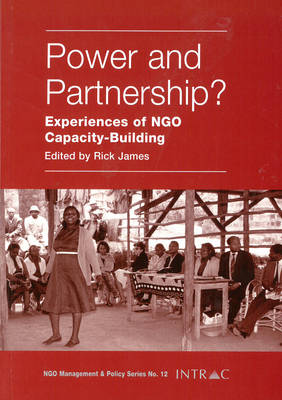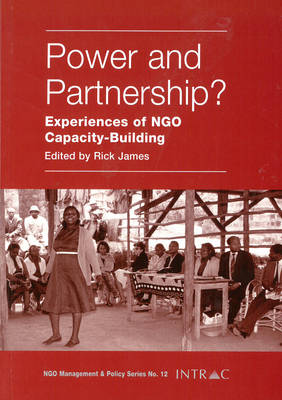
- Afhalen na 1 uur in een winkel met voorraad
- Gratis thuislevering in België vanaf € 30
- Ruim aanbod met 7 miljoen producten
- Afhalen na 1 uur in een winkel met voorraad
- Gratis thuislevering in België vanaf € 30
- Ruim aanbod met 7 miljoen producten
Zoeken
€ 25,45
+ 50 punten
Omschrijving
Power and Partnership has emerged from the 1999 conference, 'NGOs in the Global Future', at the University of Birmingham. A panel set up to focus on NGO capacity-building. Invited individuals presented papers describing their actual experiences of NGO capacity-building to better understand how capacity-building is implemented in practice and in reality, and to discover what works and why. The term "capacity-building" has become synonymous with "development" in many circles. The World Bank, bi-lateral and multi-lateral donors, international NGOs (INGOs) and some local NGOs are prioritising capacity-building. A recent survey of Northern NGOs revealed that an overwhelming majority, over 91%, claimed to be involved in capacity-building. It is therefore critical to analyse carefully the practice of capacity-building to ensure that we learn from others' experience and avoid the danger that the term capacity-building becomes merely a cosmetic and meaningless addition to all proposals and policies. Capacity-building is a conscious approach to change which, if taken seriously, has very radical and far-reaching implications not only for skills and behaviours, but also power dynamics within and between organisations. Power and Partnership seeks to contribute to our understanding of capacity-building interventions, drawing out the issues and insights from practice. It also highlights the consequent implications, particularly for Northern NGOs involved in developing strategies for capacity-building. It is aimed at all development professionals engaged in capacity-building, but has particular reference to Northern NGOs, Southern NGOs and capacity-building providers.
Specificaties
Betrokkenen
- Auteur(s):
- Uitgeverij:
Inhoud
- Aantal bladzijden:
- 160
- Taal:
- Engels
Eigenschappen
- Productcode (EAN):
- 9781897748596
- Verschijningsdatum:
- 1/01/2001
- Uitvoering:
- Paperback
- Formaat:
- Trade paperback (VS)
- Afmetingen:
- 156 mm x 234 mm
- Gewicht:
- 265 g

Alleen bij Standaard Boekhandel
+ 50 punten op je klantenkaart van Standaard Boekhandel
Beoordelingen
We publiceren alleen reviews die voldoen aan de voorwaarden voor reviews. Bekijk onze voorwaarden voor reviews.











